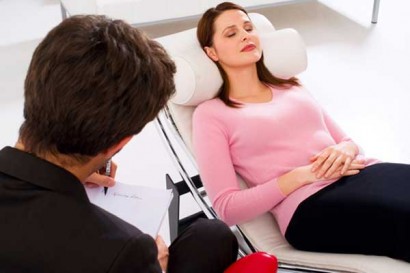Mental Health Treatment
Mental Health Treatment

Various forms of mental health treatment can help you recover from mental illness.
Being diagnosed with a mental illness can be concerning and difficult to cope with but it’s the first step to getting appropriate treatment so that you can take back control of your life. Participating in an individual treatment plan can provide some relief from the symptoms that you are feeling can help you to experience improved quality of life following a diagnosis. The severity of your symptoms, the availability of various mental health treatments and various other factors will play a key role in your overall recovery.
People who suffer from mental illness typically respond best to treatment that includes:
- medication
- psychosocial treatment
- psychotherapy
- support groups
- interpersonal therapy
- family therapy
In some cases, hospitalization may be required in order to provide the most effective treatment for an individual suffering from a severe case of mental illness or in cases in which the individual poses a serious safety risk to himself or to others. Psychiatric hospitals, residential treatment centers and rehabilitation facilities provide around-the-clock treatment for those suffering from a wide range of mental health conditions including:
- anxiety
- depression
- substance abuse
- co-occurring disorders
- schizophrenia
Medications
Although medications do not cure mental illness, they can provide some relief from the symptoms associated with various mental health disorders. A mental health specialist can prescribe medications that will help to improve symptoms, promote recovery and reduce the negative impact that certain symptoms can have on the quality of life for the patient. Most of the time, medications are the first-line of treatment for mental health disorders and are recommended before any counseling or therapy treatments are initiated.
Psychosocial Treatments
When medications are not enough to control symptoms completely, many mental health specialists will resort to psychosocial treatment as a secondary line of treatment for the patient. Psychosocial treatment includes psychotherapy, behavioral therapy, interpersonal therapy and a number of other techniques that can work to provide patients with appropriate guidance, support and education pertaining to their condition to improve their ability to cope with symptoms, avoid further problems and live a normal lifestyle.
Additional Forms of Treatment for Mental Illness
Mental health specialists also provide various other methods of treatment and intervention to help patients who suffer from mental health disorders. When medications and psychosocial therapy methods don’t provide adequate relief, Electroconvulsive Therapy (ECT) is sometimes used to manage the mental illness. Transcranial Magnetic Stimulation (TMS) may also be used in the treatment of mental illness as an alternative to medications and psychosocial therapy. These types of treatment, though found to be effective in some cases, are typically a last case resort when other, less invasive methods of treatment have not provide enough relief to restore quality of life.
